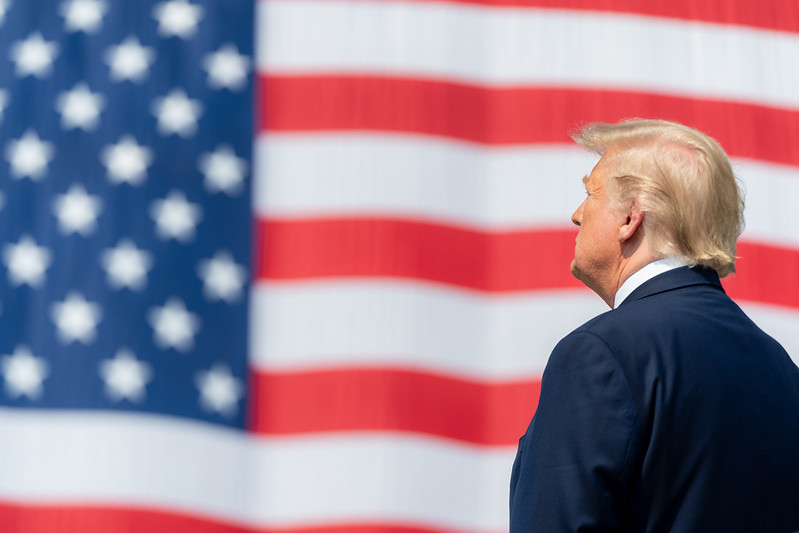
President Donald J. Trump sees off the USNS Comfort Saturday, March 28, 2020, as she departs Naval Air Station Norfolk Pier 8 in Norfolk, Virginia and sets sail for New York City. (Official White House Photo by Shealah Craighead)
In The Spectator, Ben Domenech explains the wide spectrum of views held by Donald Trump’s incoming foreign policy team. He writes:
Most of these new guys aren’t new to the world of the politically engaged, but many certainly are to people who don’t follow such things. Within foreign policy and national security, the area where Trump’s reelection marks a particularly stark break with the powers that be in both parties for the past quarter-century and beyond, his nominations are recognizable and familiar. Trump rejected the flights of fancy spawned by his too-online sycophants and the relentless advocacy of paleocons — choosing Marco Rubio for secretary of state, Mike Waltz for national security advisor and John Ratcliffe as the head of the CIA. For UN ambassador, he chose Elise Stefanik, the moderate New York representative who made a name for herself battling antisemitism on college campuses. For secretary of defense, he chose Pete Hegseth — a decorated Iraq veteran with an Ivy League résumé and a lengthy record as a cable news host, but also a record of personal vice that may disrupt his nomination. For director of national intelligence, he nominated Tulsi Gabbard, another Iraq veteran and former Democrat with a drive for transparency in government and reform of our intel agencies. Much maligned by the media since she shifted right after shafting Kamala Harris on the debate stage in 2020, Gabbard’s critics are as much from the dregs of the neoconservative intelligentsia as they are on the left, but she fits with the Trumpian agenda for intel reform, and Senate Republicans — probably joined by a few Democrats — seem likely to confirm her.
What’s remarkable about this list is how it hits virtually every aspect of the Republican foreign policy spectrum. Gabbard is fond of describing herself as a “hawk when it comes to killing terrorists, and a dove when it comes to regime change wars” — and that seems to be a mindset consistent with Trump’s. But his list is also notable for the absence of some key names who seemed headed toward major roles. Colonel Douglas Macgregor is not on this list, despite his many appearances on podcasts and Russian television fomenting conspiratorial views of the Ukraine war. There is no Ric Grenell either, though the former DNI head and ambassador to Germany lobbied hard behind the scenes for the secretary of state job. And, surprisingly, there isn’t even Elbridge Colby, the realist Ukraine-war critic who wants a harder edge toward China. On foreign policy, being a regular on Tucker Carlson’s podcast is apparently the mark of Cain.
Assuming that the president is able to get the cabinet he wants, the challenge that will immediately confront him is close to home: the 47th president will no longer have the luxury of engaging the Western Hemisphere as did nearly the entire preceding century of commanders-in-chief — as an arena to be managed, mostly through soft power, vaguely if inconsistently aligned with the West and populated by (at least notional) republics of varying quality and some amiability toward the United States.
Read more here.
If you’re willing to fight for Main Street America, click here to sign up for the Richardcyoung.com free weekly email.




